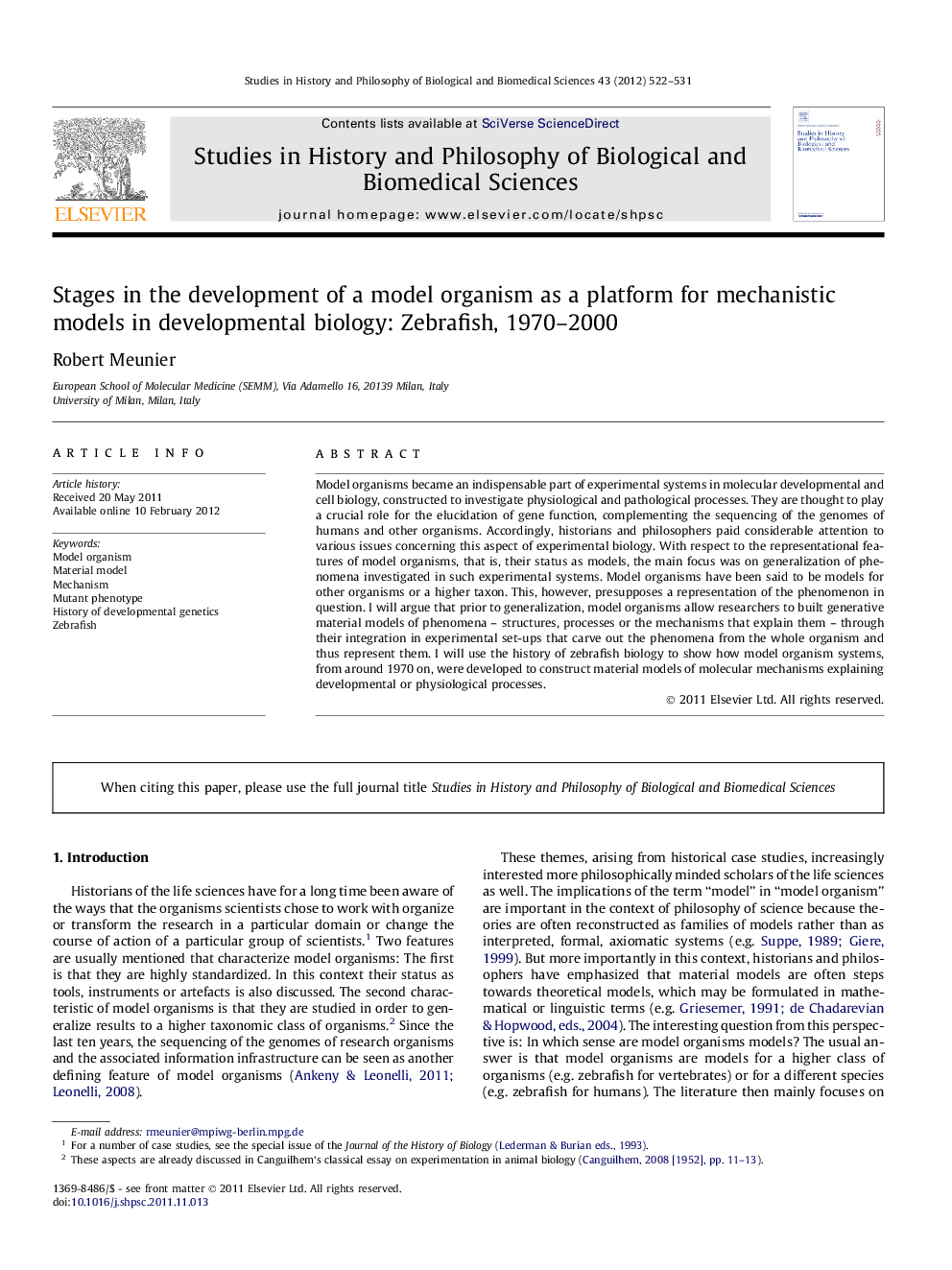| Article ID | Journal | Published Year | Pages | File Type |
|---|---|---|---|---|
| 1161847 | Studies in History and Philosophy of Science Part C: Studies in History and Philosophy of Biological and Biomedical Sciences | 2012 | 10 Pages |
Model organisms became an indispensable part of experimental systems in molecular developmental and cell biology, constructed to investigate physiological and pathological processes. They are thought to play a crucial role for the elucidation of gene function, complementing the sequencing of the genomes of humans and other organisms. Accordingly, historians and philosophers paid considerable attention to various issues concerning this aspect of experimental biology. With respect to the representational features of model organisms, that is, their status as models, the main focus was on generalization of phenomena investigated in such experimental systems. Model organisms have been said to be models for other organisms or a higher taxon. This, however, presupposes a representation of the phenomenon in question. I will argue that prior to generalization, model organisms allow researchers to built generative material models of phenomena – structures, processes or the mechanisms that explain them – through their integration in experimental set-ups that carve out the phenomena from the whole organism and thus represent them. I will use the history of zebrafish biology to show how model organism systems, from around 1970 on, were developed to construct material models of molecular mechanisms explaining developmental or physiological processes.
